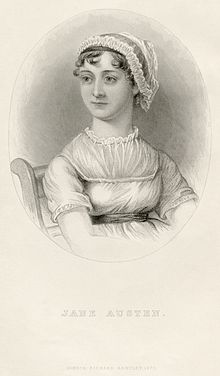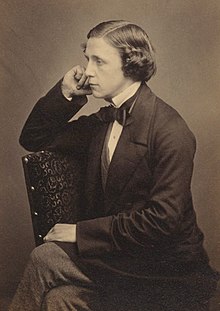User:Ricardiana/grammar

The Great Noun + -ing Debate
Here's a boring sentence for you: "All we are assuming about the Wiener-Kuratowski implementation is that x=(y, z) is stratified, with x being given a type index two greater than the index assigned to y and z."[1]
The writer of that sentence will not ride off on the Stallion of Literary Triumph, it's true, but the sentence at least seems harmless, does it not? Ah. And yet here on Wikipedia it is likely to be called ungrammatical, even "trashy." And therein lies a tale.
My interest in this problem started with this sentence, which I wrote for the article on The Hardy Boys: "The characters were portrayed as in their early 20s, with Frank working as a reporter and Joe still in college." That sentence won't win any prizes either, but I assumed it was grammatical. During a peer review, however, I was told not so - that it violated the rule of "noun plus -ing."
When I asked around about this rule, here on Wikipedia and elsewhere, I discovered that no one could name any book or text that discussed it. I therefore set about doing some research. The result was the discovery of a debate that has actually been quite heated. I'll outline that debate below; as you will see, there is no authoritative consensus on the subject.
Because there's no consensus, I submit that the usage should not be outlawed here. In any case, I hope the following little review will give people some useful background on the subject.
The general problem
[edit]
The general problem is this: What type of word can precede a gerund? Must it be a possessive? Can it be a genitive? Can it be in the objective case?
Fowler's answer
[edit]Jesperson's response
[edit]The debate continues
[edit]The entry on "Genitive before a gerund" in The Columbia Guide to Standard American English by Kenneth G. Wilson, p. 210, says that the construction of g before g used to be taught as a matter-of-course (as correct) and has now fallen into obscurity. (This explains why it "sounds wrong.") William Safire in The right word in the right place at the right time beginning on p. 1 cites a dispute over the issue of possessive before gerund in the 1920s between W. H. Fowler and Otto Jesperson. Fowler believed the genitive was essential before gerunds, but Jespersen disagreed. Antonin Scalia (!) ... yes, it's in the chapter ... believes that using a genitive is correct, but ommitted doing it on an occasion it seemed very odd. Words to the Wise by Michael Sheehan, p. 102, says that the question of what can precede a gerund turns on what you want to emphasise in a given sentence (this was Scalia's argument, actually) and that authorities are divided pretty much 50-50 on the question. Note 6 on p. 228 of Nineteenth-century English by Merja Kytö, Mats Rydén, Erik Smitterberg says that these gerundial constructions were first condemned by the Fowler brothers. The chapter to which this is a footnote investigates the occurrence of the construction in the 18th, 19th, and 20th centuries; it appears to have been used little, if at all, in the 18th century, and to have been very commonly used in the 19th and the beginning of the 20th, before Fowler & Fowler decided against it, after which usage is still frequent, but less so than in the 19th c. The chapter argues also for the inherent grammaticality of these constructions. There is a discussion of the issue beginning on p. 48 of TALKS ON WRITING ENGLISH SECOND SERIES (1901). The author argues again that the choice of word prior to the gerund should be based on what word you want to emphasize. There's more, but that's enough for now. Ricardiana (talk) 16:47, 2 June 2009 (UTC) One more: there is an extended discussion of the issue here in the American Heritage® Book of English Usage. A sample (because I can cut and paste): "gerund and possessives (fused participle). Some people insist that when a gerund is preceded by a noun or pronoun, the noun or pronoun must be in the possessive case.

Accordingly, it is correct to say I can understand his wanting to go, but incorrect to say I can understand him wanting to go. But the construction without the possessive, sometimes called the fused participle, has been used by respected writers for 300 years and is perfectly idiomatic." Ricardiana (talk) 16:57, 2 June 2009 (UTC) Tony, I think you might be interested in the entry for "possessive with gerund" in MWDEU. It quotes the following examples from an 1867 letter by Lewis Carroll: "in hopes of his being able to join me" and "the music prevented any of it being heard". I think that's basically what this section is about – otherwise sorry for the intrusion. They give a history of the dispute whether such constructions are admissible at all, and if they are admissible, whether the possessive is allowed or perhaps even required. It starts: "From the middle of the 18th century to the present time [...] grammarians and other commentators have been baffled by the construction. They cannot parse it, they cannot explain it, they cannot decide whether the possessive is correct or not. The earliest commentators, Harris and Lowth 1763, were distinctly hostile to the possessive case." They conclude: "Both forms have been used by standard authors. Both forms have been called incorrect, but neither is." --Hans Adler (talk) 13:36, 2 June 2009 (UTC)
Arguments against
[edit]"With" used loosely as a conjunction. The word with is sometimes used as a quasi-conjunction meaning and. This construction is slovenly because the with-clause appears to be tacked on as an afterthought. For example, the sentence everyone else grabbed the easy jobs with me being left to scrub the oven could be revised as since everyone else grabbed the easy jobs, I had to scrub the oven. Or it could be split into two sentences joined by a semi-colon: Everyone else grabbed the easy jobs; I had to scrub the oven. Instead of with, find the connecting word, phrase, or punctuation that best shows the relationship between the final thought and the first, and then recast the sentence. (Chicago MoS, 15th ed., 193, section 5.190)
Notes
[edit]- ^ Forster (1995), 75.
Bibliography
[edit]- Aarts, Bas, and April M.S. McMahon. The Handbook of English Linguistics. Wiley-Blackwell, 2006. ISBN 1405113820.
- American Heritage Dictionary Editors. "Gerund." In The American Heritage® Book of English Usage. New York: Houghton Mifflin Harcourt, 1996. ISBN 0395767857.
- Bates, Arlo. Talks on Writing English, Second Series. New York: Houghton Mifflin, 1901.
- Bernstein, Theodore Menlein. The Careful Writer. New York: Simon and Schuster, 1995. ISBN 0684826321.
- Bex, Tony, and Richard J. Watts. Standard English: The Widening Debate. New York: Routledge, 1999. ISBN 0415191637.
- Forster, T.E. Set Theory with a Universal Set: Exploring an Untyped Universe. Oxford Logic Guides, no. 31. 2nd edition. Oxford: Oxford University Press, 1995. ISBN 0198514778.
- Fowler, H.W., and F.G. Fowler. The King's English. 2nd edition. Oxford: The Clarendon Press, 1908.
- Jespersen, Otto, and James D. McCawley. The Philosophy of Grammar. Reprint. Chicago: The University of Chicago Press, 1992. ISBN 0226398811.
- Kytö, Merja, Mats Rydén, and Erik Smitterberg. Nineteenth-century English: stability and change. Cambridge: Cambridge University Press, 2006. ISBN 0521861063.
- Merriam-Webster. Merriam-Webster's dictionary of English usage. 2nd ed. New York: Merriam-Webster, 1994. ISBN 0877791325.
- Nash, Walter. An Uncommon Tongue: the uses and resources of English. New York: Taylor & Francis, 1992. ISBN 0415063612.
- Safire, William. The right word in the right place at the right time. New York: Simon and Schuster, 2004. ISBN 0743242440.
- Sheehan, Michael. Words to the Wise: A Lighthearted Look at the English Language. Arbutus Press, 2004. ISBN 096653168X.
- Visser, Frederic Theodor. An historical syntax of the English language. Brill Archive, 1984. ISBN 9004071423.
- Wilson, Kenneth G. The Columbia Guide to Standard American English. Reprint. New York: Columbia University Press, 1993. ISBN 0231069898.
Jesperson v Fowler [1] The Careful Writer By Theodore Menline Bernstein p 200 ff. ~ overview of debate, problems with Fowler, examples of historical writing
Jesperson & McCawley, Philosophy of Grammar [2]
Walter Nash, An uncommon tongue [3] note 16 p. 205
Frederic Theodor, An historical syntax of the English language [4] p 1186
Aarts, The Handbook of English Linguistics [5] - J v F
[above - Jesperson Fowler genitive p. 1 only] [below - ditto ditto fused p. 1 only]
Tony Bex, Standard English [6]p. 103 ff. Cites Partridge, Usage and Abusage.
